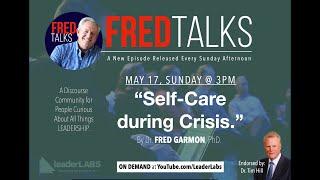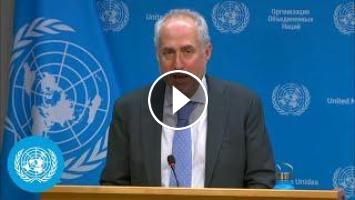Noon Briefing by Stéphane Dujarric, Spokesperson for the Secretary-General.
Highlights:
-OPT
-Security Council
-Ukraine
-Democratic Republic of the Congo
-Central African Republic
-Libya
-Haiti
-Women Entrepreneurs/Afghanistan
-Financial Contribution
-Guest Today
-Briefing Tomorrow
OPT
Staying in the region, our humanitarian colleagues today launched an appeal for more than $2.8 billion to allow United Nations agencies and our partners to address the most urgent needs of 3.1 million people in Gaza and the West Bank, including East Jerusalem, and that is through the rest of 2024.
For this response, we need to see major changes to operating conditions on the ground. Humanitarian organizations must have safe and sustained access to all people in need across the Gaza Strip and the West Bank.
We need more entry and supply routes by land into Gaza, including to the north, as well as the greater use of Ashdod port. We need fewer constraints on our movements inside Gaza. We need to be able to bring in critical humanitarian items, including communications equipment and protective gear for UN staff.
We need visas and permits for aid workers. And we need timely and flexible funding.
Despite the ongoing hostilities in Gaza, the Office for the Coordination of Humanitarian Affairs reports that we along with our partners continue our efforts to reach people in need across Gaza, wherever they may be.
On Monday, the World Health Organization and its partners reached two hospitals and a medical facility in northern Gaza. In a social media post, the Director-General of WHO, Dr. Tedros [Adhanom Ghebreyesus] said the mission was severely delayed, leaving less time for assessment of the facilities.
He said the removal of dead bodies from Al Shifa Hospital, in Gaza city, is ongoing. At the Indonesian Hospital, reconstruction efforts are underway, as the facility currently stands empty.
Meanwhile, the Palestinian Medical Relief Society facility continues to receive trauma patients and provide basic health services.
Dr. Tedros said that WHO will provide fuel and medical supplies, which are urgently needed.
In southern Gaza, an engineering team from UNRWA is assessing the agency’s facilities in Khan Younis for the possible return of displaced people who need shelter, following the withdrawal of the Israeli troops from that area.
SECURITY COUNCIL
This morning, the Security Council held a meeting on “the role of young persons in addressing security challenges in the Mediterranean.”
Briefing Council members was Rosemary DiCarlo, the Under-Secretary-General for Political and Peacebuilding Affairs. She told Council members that it is estimated that one out of four young people around the world is affected by violence or armed conflict. The young, especially women, she added, are more vulnerable to neglect, abuse, and exploitation, and young people are more likely to be recruited by armed groups when they have no other livelihood opportunities.
Ms. DiCarlo pointed out that these grim facts and figures are borne out in the unfolding calamity in one part of the Mediterranean - the 7 October attack on Israel by Hamas and the war in Gaza has destroyed the lives of many young people.
She noted that seventy per cent of the population in Gaza is under the age of 30 and almost all have been exposed to unprecedented levels of trauma, violence, disease, and food insecurity.
UKRAINE
The Humanitarian Coordinator in Ukraine, Denise Brown, today condemned the latest wave of deadly strikes across the country, including in the northern city of Chernihiv.
According to Ukrainian authorities, the attacks killed and injured civilians, including children, and damaged homes and a hospital.
Ms. Brown underscored that under international humanitarian law, civilians and hospitals must be protected at all times.
Aid workers in Chernihiv are on the ground supporting people impacted by the strikes – including with psychosocial and legal assistance – complementing the work of first responders and rescue services.
Meanwhile, the International Organization for Migration and non-governmental organization partners are mobilizing emergency repair materials and other supplies, as well as cash assistance.
In southern Ukraine today, an inter-agency humanitarian convoy delivered aid to Prymorske Town in the Zaporizhzhia Region. This support is from UNICEF, the World Health Organization, and other humanitarian partners and included drinking water, medical supplies, and hygiene items for people impacted by shelling, which often disrupts electricity and water supplies.
Full Highlights:
https://www.un.org/sg/en/content/noon-briefing-highlight?date%5Bvalue%5D%5Bdate%5D=17%20April%202024
Highlights:
-OPT
-Security Council
-Ukraine
-Democratic Republic of the Congo
-Central African Republic
-Libya
-Haiti
-Women Entrepreneurs/Afghanistan
-Financial Contribution
-Guest Today
-Briefing Tomorrow
OPT
Staying in the region, our humanitarian colleagues today launched an appeal for more than $2.8 billion to allow United Nations agencies and our partners to address the most urgent needs of 3.1 million people in Gaza and the West Bank, including East Jerusalem, and that is through the rest of 2024.
For this response, we need to see major changes to operating conditions on the ground. Humanitarian organizations must have safe and sustained access to all people in need across the Gaza Strip and the West Bank.
We need more entry and supply routes by land into Gaza, including to the north, as well as the greater use of Ashdod port. We need fewer constraints on our movements inside Gaza. We need to be able to bring in critical humanitarian items, including communications equipment and protective gear for UN staff.
We need visas and permits for aid workers. And we need timely and flexible funding.
Despite the ongoing hostilities in Gaza, the Office for the Coordination of Humanitarian Affairs reports that we along with our partners continue our efforts to reach people in need across Gaza, wherever they may be.
On Monday, the World Health Organization and its partners reached two hospitals and a medical facility in northern Gaza. In a social media post, the Director-General of WHO, Dr. Tedros [Adhanom Ghebreyesus] said the mission was severely delayed, leaving less time for assessment of the facilities.
He said the removal of dead bodies from Al Shifa Hospital, in Gaza city, is ongoing. At the Indonesian Hospital, reconstruction efforts are underway, as the facility currently stands empty.
Meanwhile, the Palestinian Medical Relief Society facility continues to receive trauma patients and provide basic health services.
Dr. Tedros said that WHO will provide fuel and medical supplies, which are urgently needed.
In southern Gaza, an engineering team from UNRWA is assessing the agency’s facilities in Khan Younis for the possible return of displaced people who need shelter, following the withdrawal of the Israeli troops from that area.
SECURITY COUNCIL
This morning, the Security Council held a meeting on “the role of young persons in addressing security challenges in the Mediterranean.”
Briefing Council members was Rosemary DiCarlo, the Under-Secretary-General for Political and Peacebuilding Affairs. She told Council members that it is estimated that one out of four young people around the world is affected by violence or armed conflict. The young, especially women, she added, are more vulnerable to neglect, abuse, and exploitation, and young people are more likely to be recruited by armed groups when they have no other livelihood opportunities.
Ms. DiCarlo pointed out that these grim facts and figures are borne out in the unfolding calamity in one part of the Mediterranean - the 7 October attack on Israel by Hamas and the war in Gaza has destroyed the lives of many young people.
She noted that seventy per cent of the population in Gaza is under the age of 30 and almost all have been exposed to unprecedented levels of trauma, violence, disease, and food insecurity.
UKRAINE
The Humanitarian Coordinator in Ukraine, Denise Brown, today condemned the latest wave of deadly strikes across the country, including in the northern city of Chernihiv.
According to Ukrainian authorities, the attacks killed and injured civilians, including children, and damaged homes and a hospital.
Ms. Brown underscored that under international humanitarian law, civilians and hospitals must be protected at all times.
Aid workers in Chernihiv are on the ground supporting people impacted by the strikes – including with psychosocial and legal assistance – complementing the work of first responders and rescue services.
Meanwhile, the International Organization for Migration and non-governmental organization partners are mobilizing emergency repair materials and other supplies, as well as cash assistance.
In southern Ukraine today, an inter-agency humanitarian convoy delivered aid to Prymorske Town in the Zaporizhzhia Region. This support is from UNICEF, the World Health Organization, and other humanitarian partners and included drinking water, medical supplies, and hygiene items for people impacted by shelling, which often disrupts electricity and water supplies.
Full Highlights:
https://www.un.org/sg/en/content/noon-briefing-highlight?date%5Bvalue%5D%5Bdate%5D=17%20April%202024
- Category
- United Nations
- Tags
- UN, United Nations, UNGA
Be the first to comment













